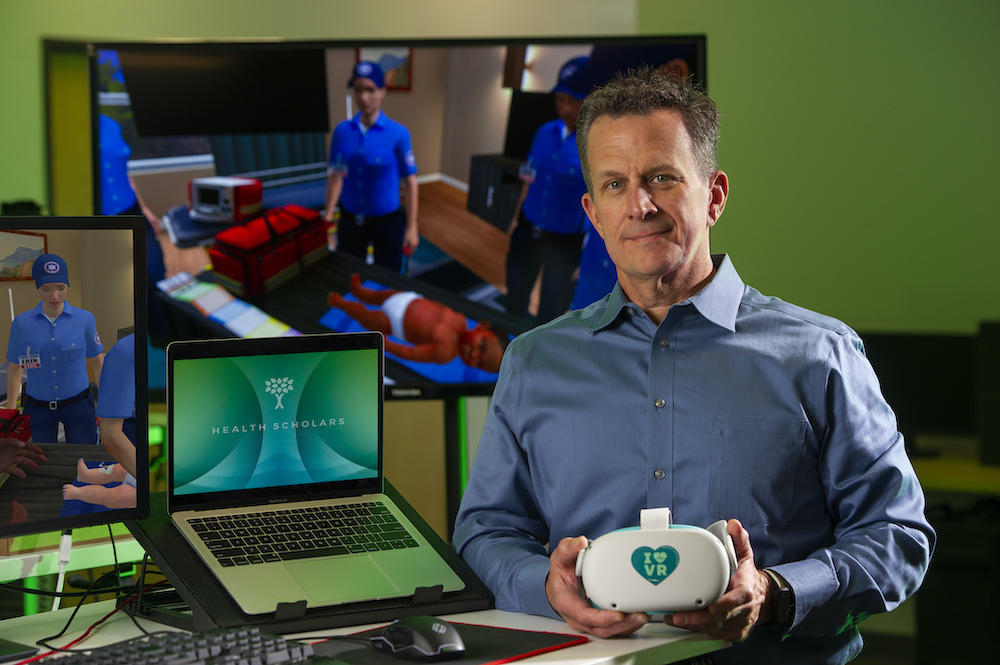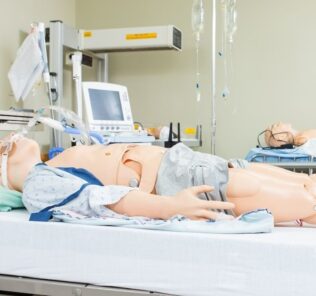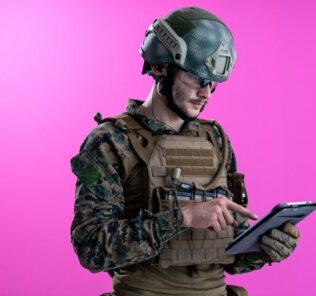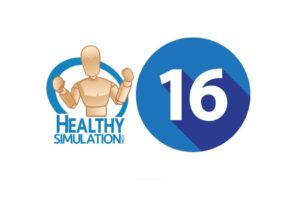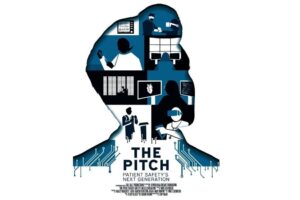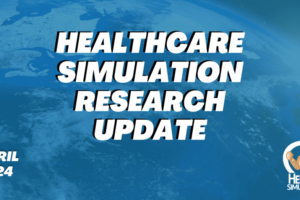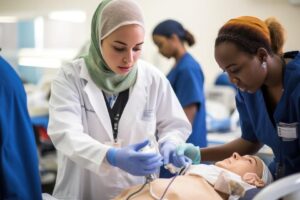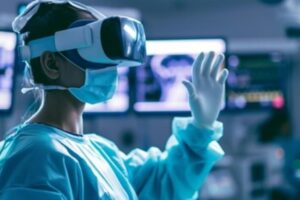Health Scholars’ Strengthens EMS Portfolio to Meet Virtual Learning Demand
Health Scholars is a cloud-based, virtual reality-ready clinical training platform with VR simulations, simulation center management and clinical readiness reporting solutions for the management, delivery and analysis of clinical training. Since the COVID-19 pandemic began, the company saw hospital engagement slow, but this shift in momentum allowed Health Scholars to strengthen the company’s EMS portfolio. Now, Health Scholars plans to continue to focus efforts in the hospital and EMS space, leading to the release of a Pediatric Emergency Care training later in summer 2021 to complement the company’s Pediatric Emergency Assessment training. In this article, HealthySimulation.com spoke to CEO Scott Johnson to learn more.
“The benefit of COVID-19 was that it proved healthcare can be nimble, can change, and be virtual-first. It proved the virtual learning model for us and has catalyzed the interest and adoption we’re now seeing,” shared Johnson.
Johnson continued by emphasizing that patient safety and quality of care continue to be a significant problem and cost center for healthcare. He shared that while clinical simulation is the best solution for improving provider competency and patient outcomes, access to healthcare simulation training is still limited. To combat this reality, Johnson says that providers must begin to be treated more like athletes, in that they should be provided with meaningful, repeated practice to build muscle memory and critical thinking skills required to perform at their very best.
Sponsored Content:
“There is also a renewed focus on the importance of teaching cognitive skills and how critical they are for providers to deliver professional, competent, and effective patient care, especially in high-risk situations. These softer skills are learned by doing, not listening to a lecture, or clicking through an eLearning course,” said Johnson. “True competency is going to happen through repeated clinical experience, and that is what simulation provides.”
Further, he noted that current high-fidelity clinical simulation modalities can’t scale and are not a long-term solution as healthcare transforms into a virtual-first model. He added that current clinical simulation options can be time-consuming, resource-intensive, and do not address training variability or biased performance assessment issues.
“Tons of money continues to be thrown at manikins because that’s the most ‘immersive’ option we have or in eLearning platforms that we know don’t deliver any true competency,” Johnson said. “Virtualization solves all of these issues and limitations. Using VR makes sim training convenient, repeatable, learner-centric, and standardized, but most importantly, VR can objectively assess competency domains.”
In providing a healthcare simulation solution through virtualization, Johnson believes Health Scholars is extending a resource to the clinical simulation community that can provide detailed performance analysis and provide healthcare a true ROI on their education and training efforts. Of all the Health Scholars’ products, he says the most popular solutions are those designed for pediatric emergency training. According to Johnson, this is because pediatrics is such an underserved area of education, but an area where preventable harm is devastating to everyone involved. As pediatric care is nuanced, real-life exposure and practice are critical.
Sponsored Content:
“Most providers will only encounter a handful of pediatric emergencies during their career, so VR simulation provides an easy way to expose providers to pediatric emergencies,” said Johnson. “Our applications allow learners to assess and manage pediatric patients, varying in age, race, and conditions. Learners can physically see the conditions they may experience in the field, like mottling or flaring, and practice the proper identification and management. It’s pretty amazing to see learners’ reactions.”
Added Benefits of Health Scholars’ Solutions
Johnson said what helps Health Scholars stand out from the competition is the combination of the company’s AI-enabled voice technology, adaptive learning techniques, and performance assessment and reporting. Health Scholars’ applications are entirely controlled by voice and allow learners to interact and communicate with the patient and team members in real-time.
“It is the closest clinical experience you can have next to the real thing. We’ve enabled an on-demand, real-life assessment, management, and cognitive skills training system that measures competency,” Johnson said. “We’re also the only VR training provider focused on addressing mandated training areas and working side-by-side with professional societies to develop content that meets quality of care requirements.”
In working to improve training, Health Scholars’ “why” has remained the same since the company’s founding — to make patient care safer by helping providers be their very best on the worst day of someone’s life. Yet, since the company’s early days, Johnson says Health Scholars has outgrown the “scrappy start-up approach” and become more sophisticated in the company’s technology, product offerings, and operations, as well as embraced a customer-centric approach to everything done.
“Our prospects and customers have also become more sophisticated. When we started, we were very focused on educating the market around the basics of VR and its validity. But as the market has become more informed and accepting of VR, we’ve turned our focus to helping prospects, and customers understand VR implementation and paths for curriculum integration,” said Johnson.
To date, Health Scholars has also tripled the size of the company’s engineering group, added critical expertise to the commercial team, improved customer feedback programs, and partnered with organizations like AAP and AORN. These partnerships are designed to ensure Health Scholars’ products are the most clinically meaningful and immersive training experience on the market.
In the near future, Health Scholars plans to round out the company’s perioperative offering in the fall with the addition of Malignant Hyperthermia training and releasing the first application in its obstetrics line — Obstetrical Hemorrhage. The company’s obstetrics line will be “game-changing,” according to Johnson, and the team is very excited to help positively impact the maternal health crisis.
“We’re fortunate to be working with so many innovative educators and leaders across EMS and hospitals who are all hungry for change. We ask so much of our providers and educators,” Johnson said. “Hearing how our VR is making their lives easier, but most importantly, giving providers the confidence and competency to do their job well, is what keeps our team going.”
More About Health Scholars
Health Scholars, the leading VR clinical training platform, develops VR simulations with ultra-realistic animation, adaptive learning practices, AI, and voice to deliver simulations with the most immersive and interactive experience a provider can have, next to the real thing. Healthcare professionals use the platform to perfect critical skills and competencies, including communication, teamwork, decision-making, and critical thinking.
At the same time, executives and educators can validate provider competency and leverage detailed analytics to identify skills gaps and optimize training to mitigate risk and help prevent costly sentinel events. With simulation expert and ED physician Dr. Brian Gillett and health tech veteran Scott Johnson leading the charge, Health Scholars aims to improve patient outcomes with transformative VR training solutions. Because the best training isn’t read or watched, it’s experienced.
Learn More About Health Scholars
Lance Baily, BA, EMT-B, is the Founder & CEO of HealthySimulation.com, which he started while serving as the Director of the Nevada System of Higher Education’s Clinical Simulation Center of Las Vegas back in 2010. Lance is also the Founder and acting Advisor to the Board of SimGHOSTS.org, the world’s only non-profit organization dedicated to supporting professionals operating healthcare simulation technologies. His co-edited Book: “Comprehensive Healthcare Simulation: Operations, Technology, and Innovative Practice” is cited as a key source for professional certification in the industry. Lance’s background also includes serving as a Simulation Technology Specialist for the LA Community College District, EMS fire fighting, Hollywood movie production, rescue diving, and global travel. He and his wife Abigail Baily, PhD live in Las Vegas, Nevada with their two amazing daughters.
Sponsored Content:



